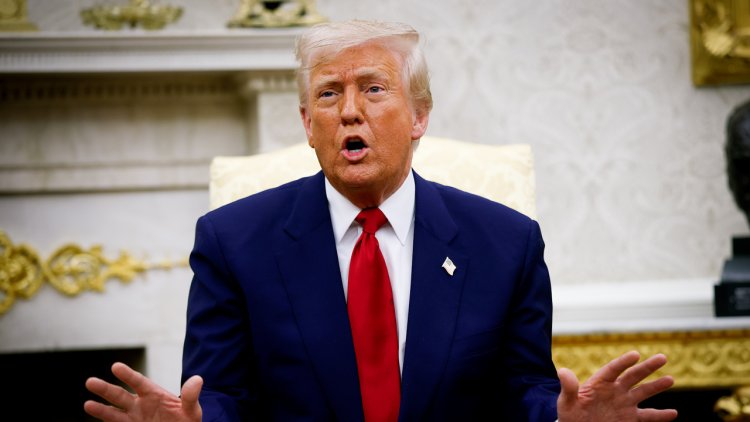Trump Warns of Imposing Extra 50 Percent Tariffs on China
The recent action intensifies the ongoing retaliatory measures between Washington and Beijing, which began after the president implemented a broad import tax last week.

“If China does not withdraw its 34% increase above their already long term trading abuses by tomorrow, April 8th, 2025, the United States will impose ADDITIONAL Tariffs on China of 50%, effective April 9th,” Trump stated in a post on Truth Social.
Last week, China emerged as one of the primary targets of Trump's "Liberation Day" tariffs. In response, Beijing swiftly criticized the tariffs and implemented 34 percent tariffs on U.S. imports, mirroring the import taxes Trump had introduced against China.
The Chinese Embassy did not provide immediate comments regarding the president's latest threat.
In contrast to other major trading partners that have been eager to negotiate with the Trump administration, Beijing has largely refrained from engaging on tariff discussions, opting instead to remain unresponsive as Trump has intensified pressure over recent months.
Although Trump has repeatedly suggested that a conversation with Chinese President Xi Jinping is imminent, the two leaders have yet to communicate since the White House initiated its first round of tariffs against China in February.
Should a 50 percent tariff on Chinese goods be implemented, it would elevate the overall tariff rate on China to above 100 percent, when combined with the current 54 percent tariffs already imposed by the White House this year, as well as tariffs on specific products from Trump's initial term. Additionally, a potential 25 percent tariff on imports of oil from Venezuela, announced by the president last month, would add to this rate.
Trump also signed an executive order last Wednesday that closes a loophole permitting packages valued at less than $800 to enter the U.S. tariff-free. This loophole has been widely utilized by Chinese companies, particularly in the "fast fashion" sector, to ship billions of low-cost goods directly to American consumers.
The president also announced significant tariffs on countries such as Vietnam and Taiwan, which have been leveraged by both Chinese and American companies to facilitate the transfer of goods. These tariffs are poised to take effect on Wednesday. The likely outcome will be increased prices for traditionally low-cost items, such as consumer electronics and affordable clothing.
On Capitol Hill, lawmakers have largely supported imposing tariffs on China, although they have expressed concerns about Trump's tariffs on allies like Canada, Mexico, and the European Union. While Trump has centered his attention on the trade deficit with China — the U.S. recorded a $295 billion trade deficit with China in 2024 and has already seen a $52 billion deficit in 2025 — lawmakers have tended to spotlight China's emergence as a formidable economic and military power.
"I've been a China hawk," Senate Minority Leader Chuck Schumer remarked at a press conference last week. "And the kind of . . . broad tariffs on China, which has hurt us every step of the way on trade, makes sense."
Aarav Patel for TROIB News
Find more stories on Business, Economy and Finance in TROIB business












